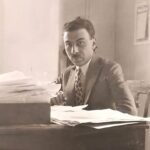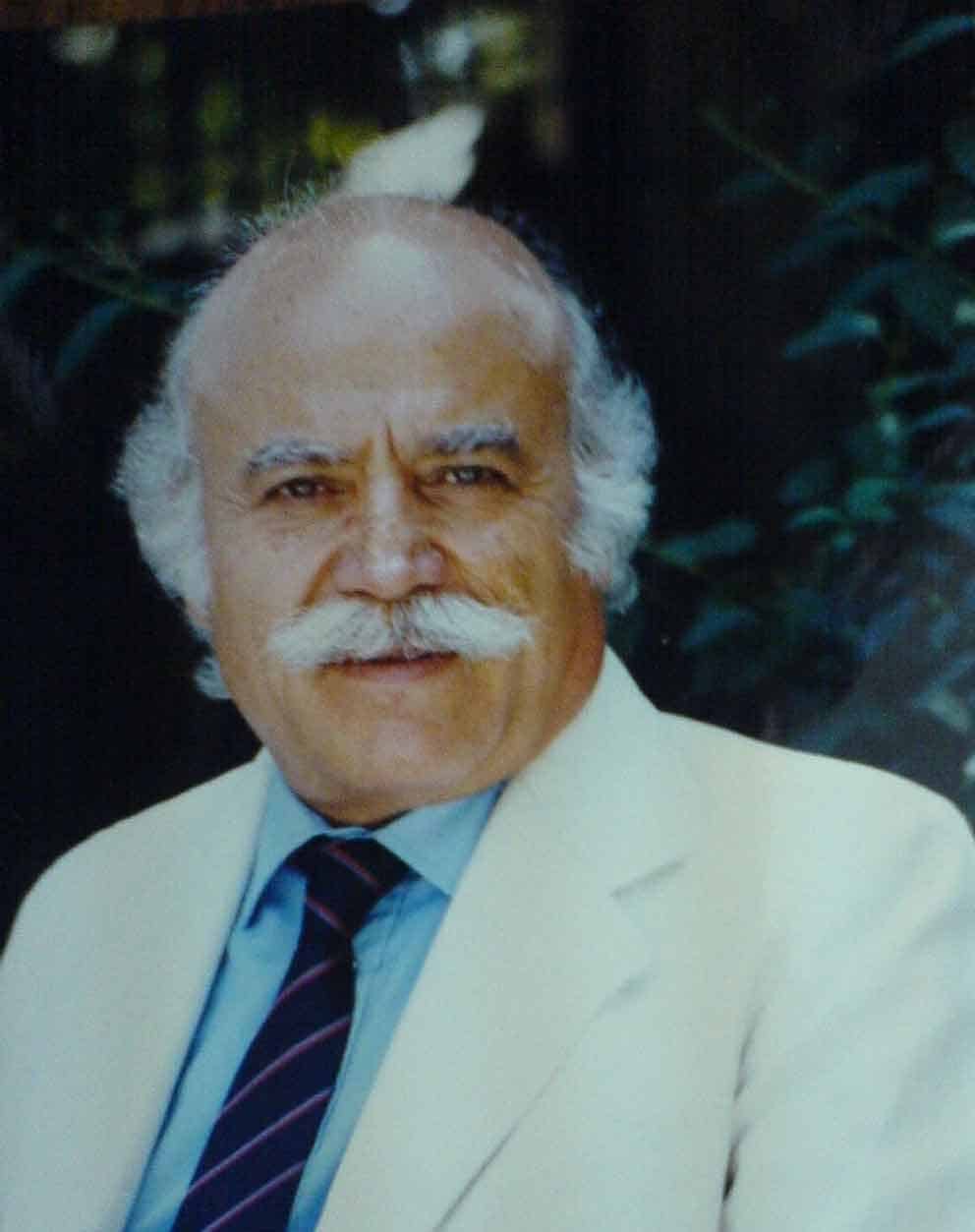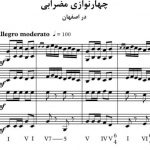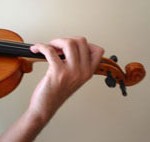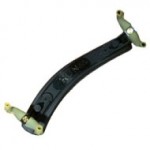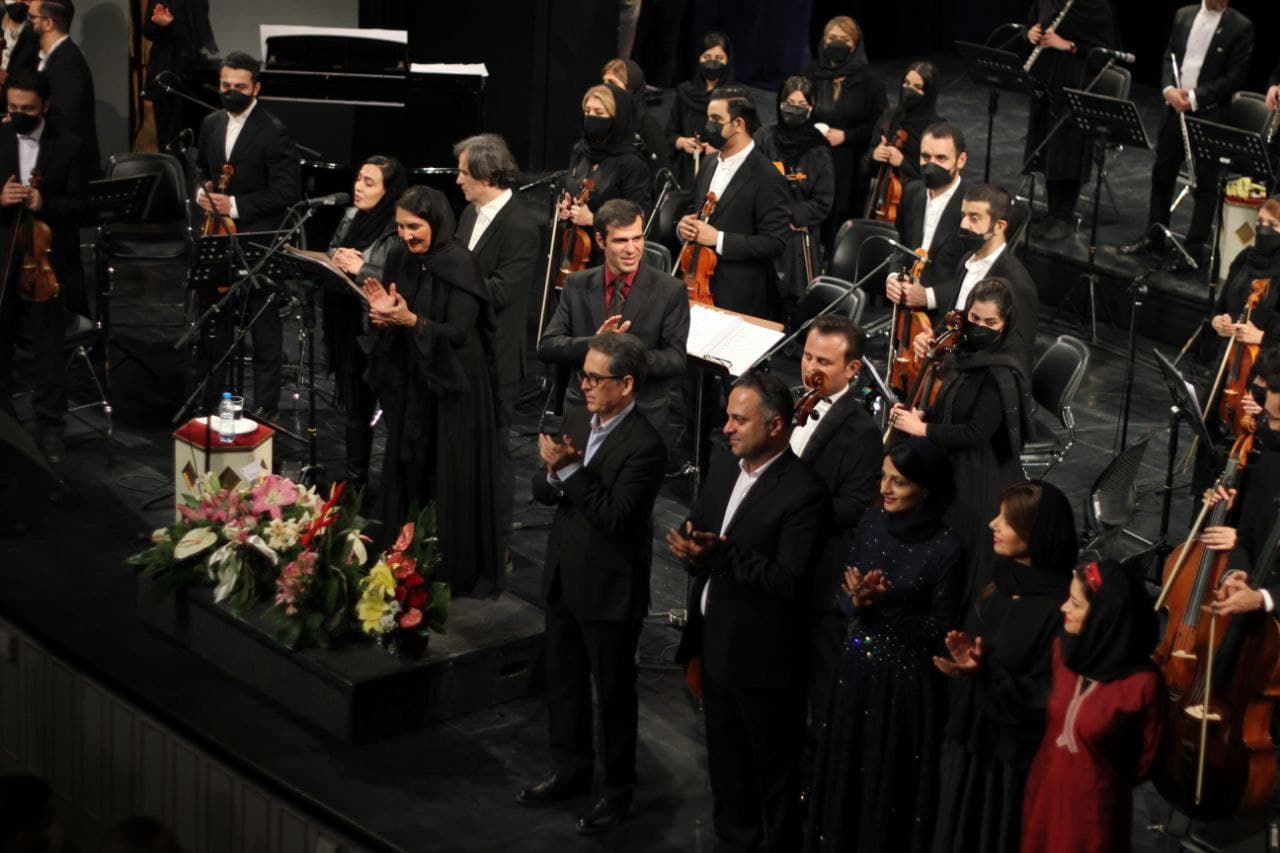
The Motherland Orchestra staged the first concert since the outbreak of the pandemic under the baton of Nezhat Amiri. The orchestra went on stage on December 23-24, 2021 in memory of Rouhollah Khaleghi and Golnoush Khaleghi at Vahdat Hall, Tehran, Iran. Since the pandemic outbreak, concerts were held online and restrictions were imposed on in-person concerts.
The Motherland Orchestra performed a full-capacity concert which was warmly welcomed by the audience. Observing the Covid-19 protocols and with the collaboration of four soloists, the orchestra performed pieces by Rouhollah Khaleghi, Morteza Mahjoubi, Golnoush Khaleghi, Tofiq Alief, Mehrdad Delnavazi and Behzad Abdi.
The concert project manager was Sadjad Pourghannad, while Ebrahim Ghaedi was the Motherland Orchestra manager and Boroumand Haghighi was the producer and financial manager. The concert singer was Zadbeh (Ghaffar Zabeh) and soloists were Seda Sodeifi: Qanoon, Maryam Khodabakhsh: Oud, Ali Najafi Maleki: Ney and Shima Shahmohammadi: Qeychak. Nezhat Amiri who conducted the orchestra is the first Iranian woman to conduct a state-owned orchestra since the Islamic Revolution of 1979.
The last concert of the Motherland Orchestra dates back to two years ago when an orchestra consisting of women went on stage in the Vahdat Hall garden under the baton of Nezhat Amiri in memory of nurses taking care of Covi-19 patients. The concert which was filmed and available to audience offline featured a piece by the late Iranian Tar player and Iranian classical music composer Aminollah Hossein.
***
Golnoush Khaleghi, the daughter of Rouhollah Khaleghi, was one of the most successful Iranian musicians and a pioneer of conducting orchestras as a woman. She learned to play piano under his father and Maestros such as Hossein Saba, Javad Maroufi and Emanuel Malik-Aslanian. She also receive harmony lessons from Mostafa Kamal Pourtorab. According to the website of the Rouhollah Khaleghi Artistic Center, Golnoush Khaleghi “Golnoush spent three-and-half years at the Akademie Mozarteum in Salzburg, specializing in conducting under the tutelage of Professor Kurt Prestel and Professor Gerhard Wimberger. She has Bachelor’s and Master’s degrees in the same field from Oberlin College and the University of Wisconsin, respectively.
“Ms. Khaleghi has worked closely with such renowned conductors as Helmuth Rilling, Robert Fountain, Karol Teutsch, and the late Rouben Gregorian, and has performed in the United States, Europe, Canada, Venezuela, and Iran. She is the founder of the National Iranian Radio and Television Choir (Hamavazan) in Tehran and the Rouhollah Khaleghi Orchestra in Washington DC. Since the cultural upheaval of the Islamic Revolution in 1979, she has been a prominent figure in promoting Persian music and culture through the concerts of the Rouhollah Khaleghi Orchestra and other activities abroad”. (rkac)
In 1985, she established the Rouhollah Khaleghi Orchestra in Washington DC featuring 25 musicians intending to follow her father’s path; she managed to stage several pieces for a national Iranian orchestra; however, the orchestra did not last long.
In 1990, she returned to Iran to rework and stage his father’s pieces, she was not allowed to do it though and only managed to publish “Mey-e Nab” album. She passed away February 2021 in the US with the unfulfilled wish to conduct an orchestra in her home country.

